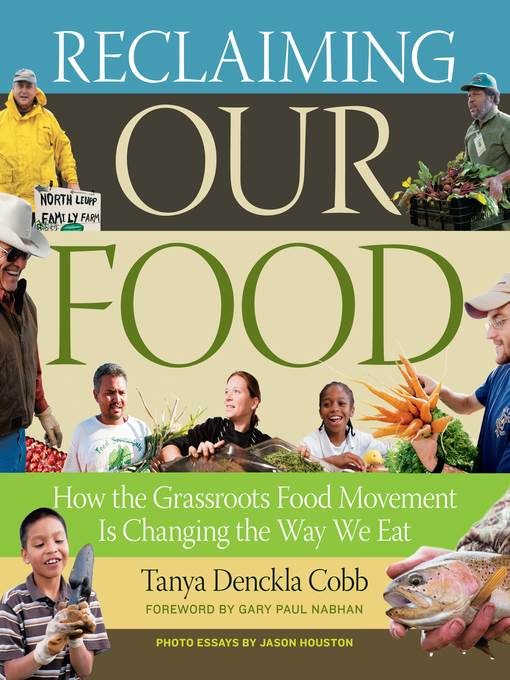
Reclaiming Our Food
How the Grassroots Food Movement Is Changing the Way We Eat
کتاب های مرتبط
- اطلاعات
- نقد و بررسی
- دیدگاه کاربران
نقد و بررسی

Starred review from September 12, 2011
In the wake of destructive factory farming practices and a gradual disconnect between people and the origins of their food, many are turning to sustainable local farming methods to reconnect with land and food sources, encourage food stability and independence (particularly in poor urban communities), support community growth, and utilize cities. As a result, a number of small non-profits and family farms are revitalizing farming for the next generation. In this meticulously researched, fascinating book, Cobb, an expert on food system planning, interviews these innovators to explore where we are as a nation in terms of food systems, where we're going, and what kinds of changes can be enacted to get us there, all in an accessible, reader-friendly tone. Cobb (The Gardener's A-Z Guide to Growing Organic Food) not only provides theory, but also includes tips for backyard gardening, raising urban livestock, and getting involved in community gardening. After finishing this immersive, inspiring, and educational book, readers will feel empowered to address the food systems in their lives and encourage a more responsible approach to consumption and production.

October 1, 2011
Food. It's not just what's for dinner anymore. Where it's grown, how it's distributed, who eats it, and why are topics with implications far beyond bodily nourishment. As Cobb, an environmental mediator who teaches food-system planning at the University of Virginia, explains, a discussion about economic disparity can motivate a community to provide free gardening plots to inner-city residents, while deeply held beliefs regarding individual rights can result in legislation allowing suburban home owners to raise chickens and goats in their backyards. Outrage over environmental devastation can inspire sustainable agriculture measures, and concerns about childhood obesity can launch farm-to-school initiatives that provide much-needed education about nutrition. Profiling ingenious concepts and imaginative practices such as land trusts, urban farming, and community-supported agriculture, Cobb examines how such seemingly non-food-related social issues such as racism and poverty can be addressed through targeted agricultural activities. In major cities and small towns alike, Cobb tells the stories of individuals, grassroots organizations, corporate sponsors, and government activists who are banding together to find innovative and effective ways for Americans to produce and consume food.(Reprinted with permission of Booklist, copyright 2011, American Library Association.)

























دیدگاه کاربران